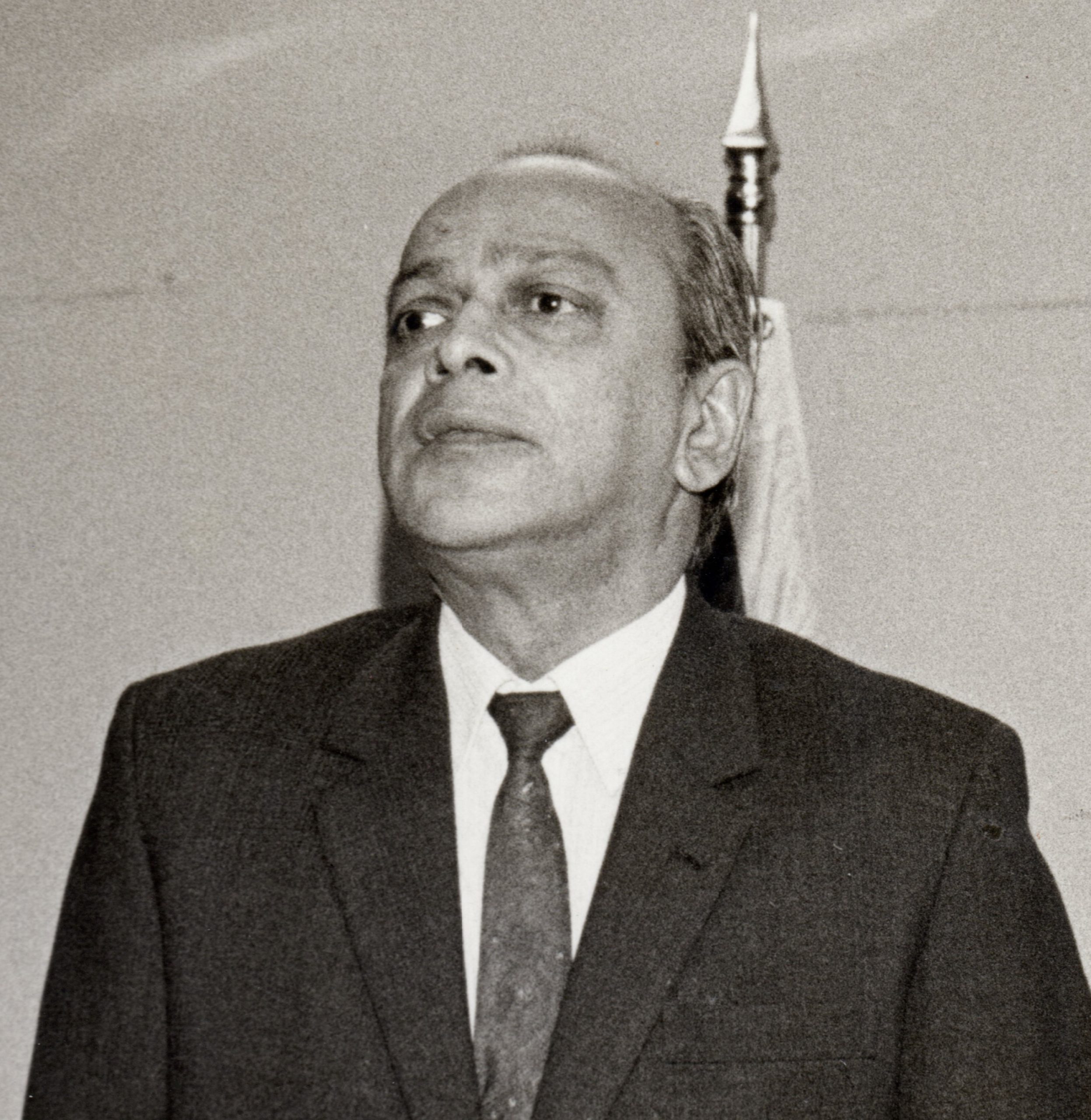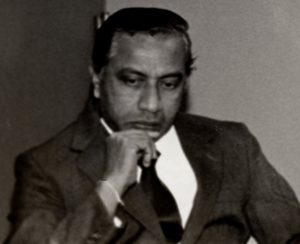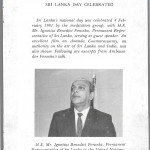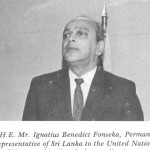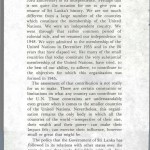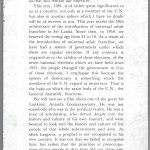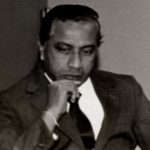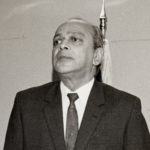Sri Lanka Day Celebrated 04 Feb 1981
Filed under asia-oceana | Tributes and Expressions of appreciationSRI LANKA DAY CELEBRATED Sri Lanka’s national day was celebrated 4 February 1981 by the meditation group, with H.E. Mr. Ignatius Benedict Fonseka, Permanent Representative of Sri Lanka, serving as guest speaker.
An excellent film on Ananda Coomaraswamy, an authority on the art of Sri Lanka and India, was also shown. Following are excerpts from Ambassa-dor Fonseka’s talk. H .E. Mr. Ignatius Benedict Fonseka, Permanent Representative of Sri Lanka to the United Nations: Sri Chinmoy, friends of the meditation group, friends of Sri Lanka, I am grateful to Sri Chinmoy and those members of the meditation group who have organised this function here today to mark the national day, the Independence Day of Sri Lanka. As you might know, Sri Lanka celebrates today the 33rd anniversary of its independence. Perhaps this is not quite the occasion for me to give you a re~ume of Sri Lanka’s history. We are not much different from a large number of the countries which constitute the membership of the United Nations. We were an independent couatry. We went through that rather common period of colonial rule, and we resumed our independence in 1948. We were admitted to the membership of the United Nations in December 1955 and in the 26 years that have elapsed we, like many of the small countries that today constitute the very substantial membership of the United Nations, have tried, to the best of our ability, to adhere, to contribute to the objectives for which this organisation was formed in 1945. The assessment of that contribution is not really for us to make. There are certain constraints or limitations on what any country can contribute to the U.N. Those constraints are understandably even greater when it comes to the smaller countries of the United Nations. Nevertheless, this organi-sation remains the only body in which all the countries of the world-irrespective of their size, their wealth and their power -can make their tmpact felt; can exercise their influence, however small or great that might be. The policy that the Government of Sri Lanka has followed in its relations with other states over the years is one that seeks friendship with all. You might say that this is an objective that no other country denies, but we try to give some content to that policy in the overall outlook we take, in the positions we adopt in the various forums of the UN; From time to time we have been able to play a role which we hope has been of use or value to different countries of the Organisation, especially to the countries our our region. In the years before us that will remain our objective. This year, 1981, is of rather great significance to us as a country, not only as a member of the V.N. but also in another sphere which I have no doubt will be of interest to you. This year marks the 50th anniversary of the introduction of universal adult franchise in Sri Lanka. Since then, in 1959, we lowered the voting age from 21 to 18. As a result of the introduction of universal adult franchise, we have had a system of government under which there are regular elections. If any evidence is required as to the validity of those elections, of the seven national elections which we have held since 1931, the people changed the government in five of those elections. I emphasise this because the system of democracy is something which the members of the V.N. regard as important. That is the basis on which the main body of the V.N., the General Assembly, functions. We will now see a film about one of the great Sri Lankans, Ananda Coomaraswamy. He was not somebody who was in the political realm. He was a man of scholarship, who delved deeply into the history and culture of his own country, and went beyond to look into the history and culture of the people of that whole subcontinent and area. As often happens, a prophet is not recognised in his own country. It was not that we failed to recognise him, but rather that the priorities or preoccupa· tions of our people at that time did not allow him to be given the recognition which he deserved. As a consequence, he came to this country where he pursued his study into the culture and history of the people of that part of the world
gallery:
- 1981-02feb-04-Sri-Lanka-Prog-Mission-scaled.jpg -412 KB
- 1981-02feb-04-Sri-Lanka-Prog0-Amb-Fonseka-scaled.jpg – 793 KB
